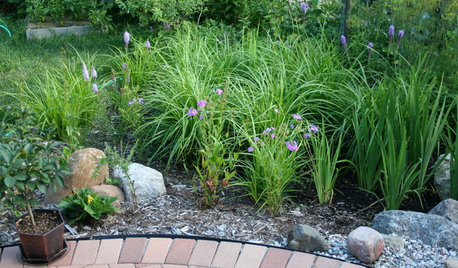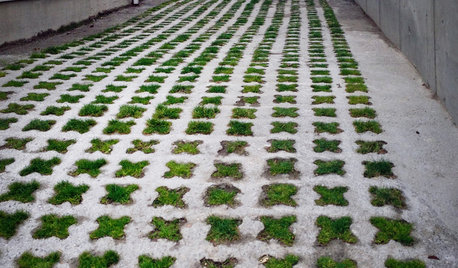Source of Potash and test results
kentstar
12 years ago
Related Stories

COLORSpeed-Dial Color Selection to Get the Best Result
You’ve belabored your color decisions and are still stuck. Here is how to evaluate your space and make choices that are right for you
Full Story
MOST POPULARThe Right Way to Test Paint Colors
Here are 5 key steps to take to ensure you're happy with your wall paint color
Full Story
MOVINGTips for Winning a Bidding War in a Hot Home Market
Cash isn’t always king in a bidding war. Get the home you want without blowing your budget, using these Realtor-tested strategies
Full Story
LANDSCAPE DESIGNHow to Site and Size a Rain Garden for Your Landscape
Installing a rain garden is an excellent way to reduce runoff and return water to its source
Full Story
EARTH DAYHow to Build a Greener Driveway
Install a permeable driveway to keep pollutants out of water sources and groundwater levels balanced
Full Story
LIGHTINGA Beginner’s Guide to Lighting in Layers
Discover the secrets of combining light sources to create richer-looking and more flexible living spaces
Full Story
WORKING WITH PROSHow to Work With a House Painter
A professional house painter may be your best friend for refreshing rooms. Here's what you need to know to get the best result
Full Story
DECORATING GUIDES6 Ways to Get a Decorated Room You'll Both Love
Blending two different design styles? These decorating strategies will help you harmonize without compromising a successful result
Full Story
HEALTHY HOMEWhat's the Deal With Radon?
Get the facts on testing for this cancer-causing gas — and how to make your home safe if it shows up
Full Story
HEALTHY HOMEGet the Lead Out: Lead Safety at Home
Keep your family safe by properly testing for and dealing with lead in old painted surfaces, water and soil
Full Story






gargwarb
toxcrusadr
Related Professionals
Carlisle Landscape Architects & Landscape Designers · Holly Springs Landscape Architects & Landscape Designers · New Bedford Landscape Architects & Landscape Designers · Forest Park Landscape Architects & Landscape Designers · Tempe Landscape Contractors · Wake Forest Landscape Contractors · Woburn Landscape Contractors · Waterbury Landscape Contractors · Fort Mill Landscape Contractors · Lewisville Landscape Contractors · Sun City Center Landscape Contractors · Fort Collins Decks, Patios & Outdoor Enclosures · New Berlin Decks, Patios & Outdoor Enclosures · Norman Decks, Patios & Outdoor Enclosures · St. Louis Decks, Patios & Outdoor EnclosureskentstarOriginal Author
gargwarb
pnbrown
feijoas
albert_135 39.17°N 119.76°W 4695ft.
hairmetal4ever
toxcrusadr
Kimmsr
Laurel Zito